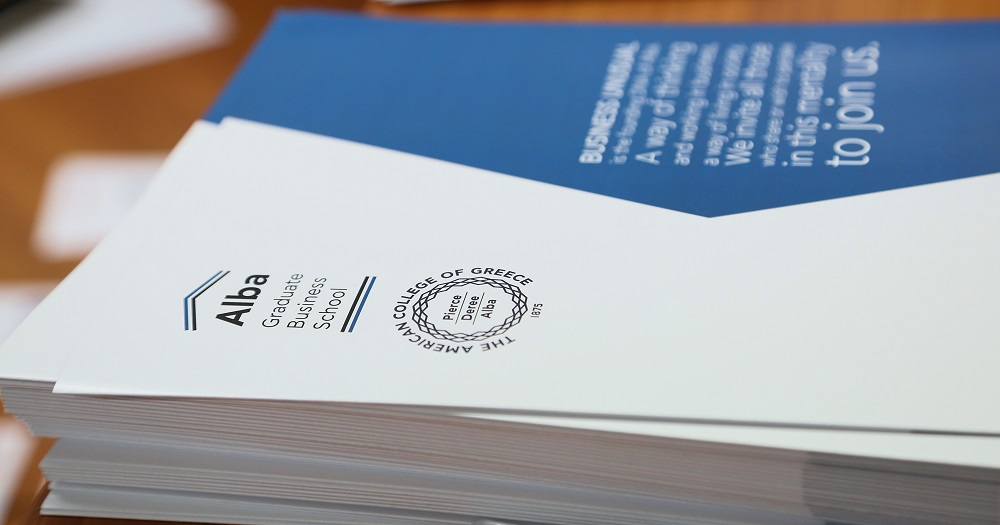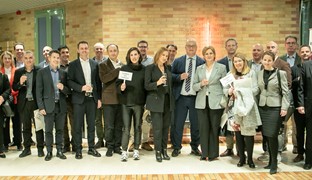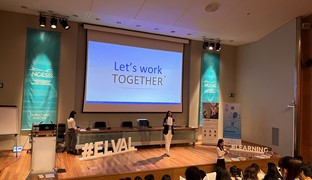Interorganizational Relationship Transformation in a Global Virtual Community
The students of the ALBA full-time MBA had the opportunity to learn from a unique project deployed by the Vodafone Group globally, presented by Dr. Christopher J. Ibbott, Director of Infrastructure Supply Chain Management, Vodafone Global Services Limited. Dr. Ibbott discussed with the ALBA MBA students, answered to questions and advised them, as the leaders of tomorrow, to be 'on tap but not on top'. Another two distinguished executives of VODAFONE - PANAFON SA contributed to the discussion: Mr. Kostas Megas Supply Chain Senior Manager and Mr. Kostas Agathakis, Head of IT & Services Procurement Department, Operations and Supply Chain Division.
Dr. Ibbott's presentation was titled 'Interorganizational Relationship Transformation in a Global Virtual Community' and described technologies and managerial practices employed by Vodafone globally in order to implement a common strategy among a group of 26 operating companies, operating in diverse cultural contexts all over the world.
Dr. Ibbott presented the way in which VODAFONE, moved towards a strategy of global harmonization in the supply chain activities, by creating a global virtual community. VODAFONE's global virtual community consists of executives from the vendors and from VODAFONE, from different countries all over the world, who communicate via an interorganizational information system called the eRelationship. On the basis of mutual trust, the executive team works towards a set of shared objectives aimed at transforming infrastructure supply relationships with vendors. Dr. Ibbott explained how social capital is built in this way, as n-dimensional communication is achieved for everyone's best interest. The executive team meets in the Global Supply Chain Management (GSCM) meetings and works through a non-hierarchical, horizontal organization. This multicultural team works as a centre of collective leadership, where objectives are set and projects are distributed to different sub-teams, according to resources and priorities of each country.
The results of this initiative were impressive: apart from reducing costs and increasing operational effectiveness, the globalization effort has led to a radical change in the relationships between different groups. Dr. Ibbott noted the importance of shared goals and trust in the team, and emphasized that this IS-supported global collaboration model succeeded because of everyone's voluntary commitment to it.
This presentation was part of the Meet the Architects of Management Excellence Lecture Series at ALBA.






